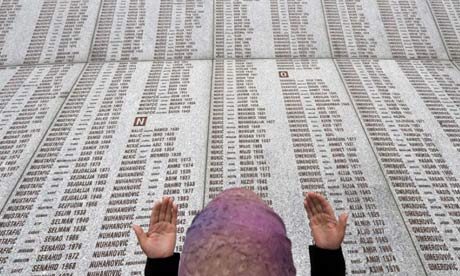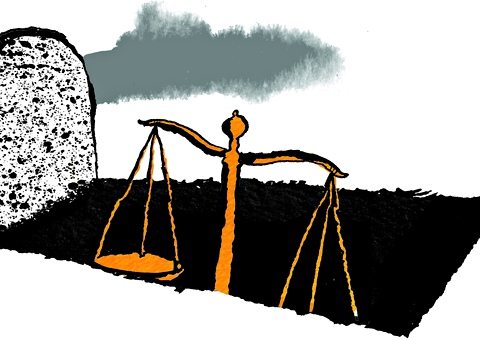Two sentences of life imprisonment, just passed on Bosnian Serb officers Vujadin Popovic and Ljubisa Beara, are the most severe ever delivered by the International Criminal Tribunal for the former Yugoslavia (ICTY). The two men were convicted of genocide – that is, for the massacre of about 8,000 Muslim men in Srebrenica in 1995. They both served under the command of General Ratko Mladic, who is still at large.
The massacre took place during the presidency of Radovan Karadzic; he is currently on trial in The Hague, also on charges of genocide. It was he who instructed Mladic to create "an unbearable situation of total insecurity with no hope of further survival" for the Srebrenica population.
The cases of Popvic and Beara are, without doubt, significant convictions, which might have an influence on the trial of Karadzic. However, the reactions of victims' relatives to these verdicts give us an idea of what, in fact, these trials of war criminals at the ICTY are all about. A woman from Srebrenica who lost her two sons, her husband and a brother, commented: "Whatever the sentence is, it's not enough." Her reaction is a typical as well as an understandable one, for no sentence could give back life to those murdered members of her family; and no punishment can compensate for the taking of a person's life – let alone thousands of lives.
If victims' relatives react now with a certain bitter resignation, who could blame them? While proving the determination and will of the international community to prosecute war criminals, trials at international criminal tribunals – whether for the former Yugoslavia, or for Rwanda, for that matter – are very limited, even token, in their reach.
Yet, perhaps, that woman might find at least some satisfaction if not in justice being done, then in the truth that is unveiled by such trials. We tend to forget that there is another dimension to the trials of war criminals, besides handing down the justice to a handful of the hundreds, if not thousands, of guilty men. Without the prospect – or risk – of such a tribunal, states involved in wars would continue to live in denial.
Only this spring, after 15 years, the Serbian parliament issued a declaration on Srebrenica, expressing regret. While avoiding the term genocide, it was a step towards recognising the historical fact of the horror – especially since, until just a year ago, the massacre at Srebrenica and the Serbian army's involvement were not officially recognised.
This is the result of the ICTY trials: it is not possible for Serbs to live in denial any longer. The historical importance of the tribunal in The Hague is not only to bring justice, but even more to bear witness to the truth about the wars in the Balkans – painstaking and slow though that process may be.
Without the truth, there can be no justice. And justice to the dead is done only when the truth cannot be denied any longer.










